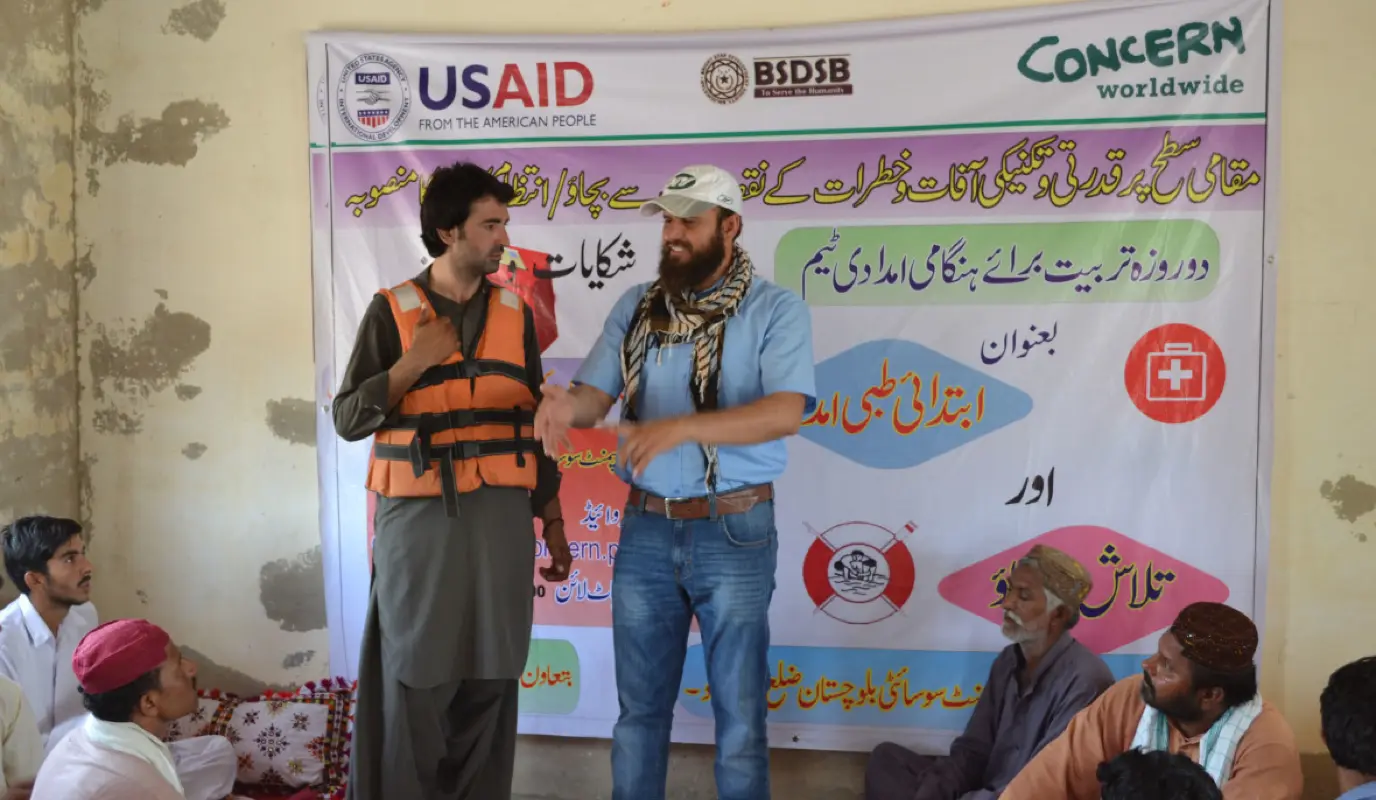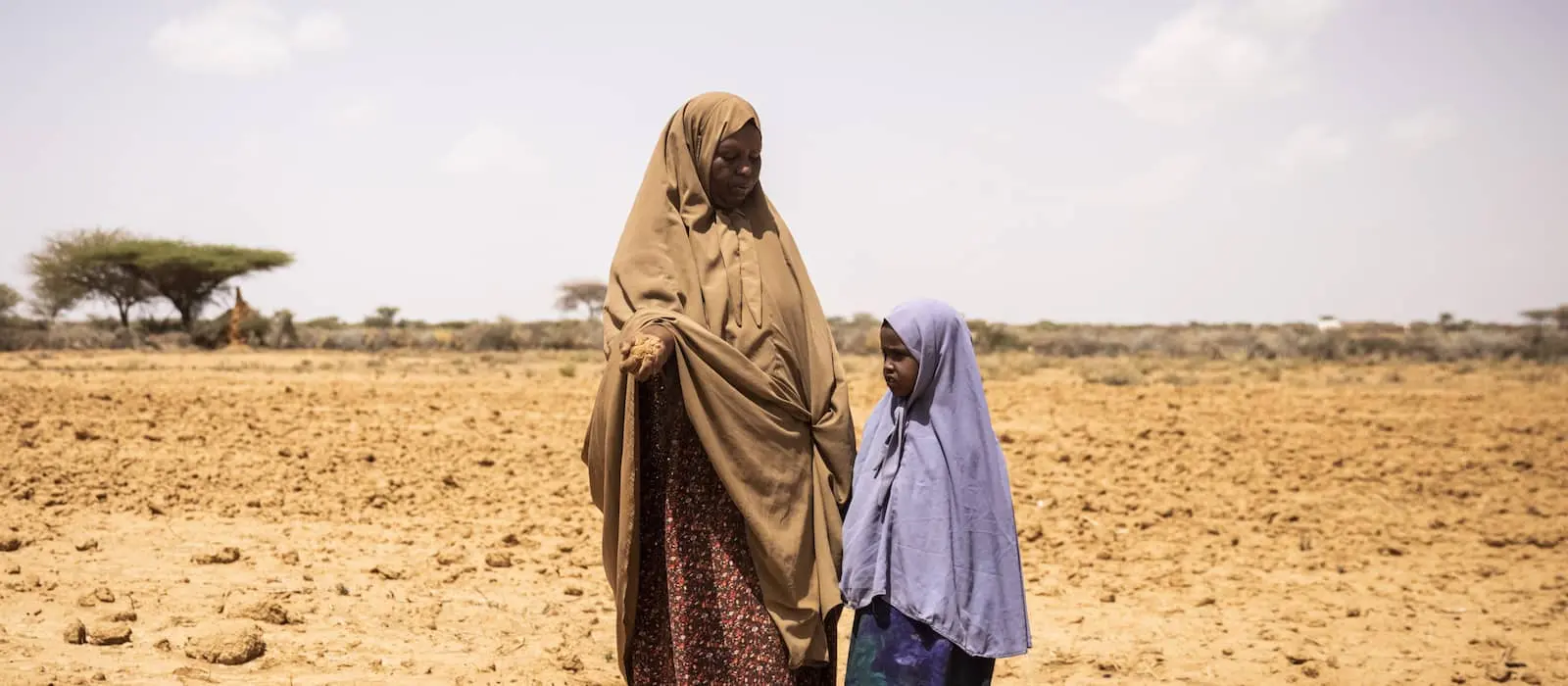Responding to Pakistan's Internally Displaced (RAPID)
RAPID is a funding program that allows Concern to quickly and efficiently deliver aid to people displaced by conflict or natural disaster.
The Challenge
Historically, Pakistan has been extremely vulnerable to natural disasters, with several record-breaking meteorological and geological events already recorded in the 21st century. In 2005, the country was hit hard by a 7.6-magnitude earthquake, originating in the north of the country and considered to be the deadliest earthquake on record for the region. Five years later, the floods that began in July 2010 had a catastrophic impact on the country, affecting many who had not yet recovered from the recent earthquake. That level of destruction would be surpassed by an even greater flood event that ravaged much of the country in 2022.
Domestic community-based organizations and non-profits are often well placed to be the most effective first responders in the event of disaster, but the complex security situation within Pakistan has traditionally been problematic for international donors seeking to provide emergency funding.
What if there was a preexisting network for supporting local communities when an emergency hit?
A Rapid Response
In any crisis, the Humanitarian Imperative is to save lives and alleviate suffering. The faster an initial phase of response can be made, the better. This prevents situations from becoming complex (or, in most cases, more complex than they already are), whether it’s food and non-food kits being distributed to keep families healthy and safe following a flood, or rehabilitating a latrine system that was destroyed in an earthquake.
In 2009 the Concern team in Pakistan, with an investment from the United States Agency for International Development (USAID), launched a fund called Responding to Pakistan’s Internally Displaced, popularly known as RAPID. A key element was the establishment of a pre-approved network of national and local organizations which would ensure that funds were going to legitimate emergency responders, meaning a faster turnaround.
RAPID worked closely with disaster management authorities, local NGOs, and communities to give smart and secure sub-grants to national and international organizations. Applications for project funding are submitted and evaluated based on the following criteria:
- Experience of the agency submitting the application
- Nature of the problem they want to address
- Capacity of the agency to deliver on their proposed solution
- Budget and cost-effectiveness
- Coordinating efforts with the government and other agencies
While many grants can take months (if not years) to be delivered, RAPID applications are processed within an average of two weeks — some have been processed in just two days. This made RAPID the most easily accessible fund for local partners in Pakistan. In addition to providing grants, the program also offered disaster risk reduction support to local organizations and authorities, to help with strengthening their disaster management capabilities for the next crisis.

Putting RAPID To The Test
Within the first year of the RAPID fund, Pakistan was consumed by floods, affecting, 20 million people and leaving 1,700 dead. Over 1 million homes were destroyed and millions of acres of farmland badly affected. 500 healthcare centers were damaged, right when they were needed most.
USAID adapted the RAPID fund to cover flood relief and within one year, it had reached over 600,000 people, covering needs like temporary shelter, non-food items, safe and clean water, and mobile health clinics.
Within the first five years of the program, RAPID had funded the construction of over 2,000 new disaster-responsive homes. It also rehabilitated thousands of water systems and latrine systems, which benefited over 340,000 people. More than 14,000 women and children were treated for malnutrition and over 70,000 people were assisted through agricultural projects.
RAPID proved to be so effective that it would evolve through two more iterations, running for a total of ten years. Since 2020, the fund has been administered for the US Government by the Bureau for Humanitarian Affairs.
In its first year, RAPID reached over 600,000 people, covering needs like temporary shelter, non-food items, safe and clean water, and mobile health clinics.
RAPID in 2023
Over the past decade, RAPID has reached more than 10.6 million people across 57 districts in four provinces of Pakistan. Through capacity-building workshops and sub-grants, the RAPID team has worked with three disaster management authorities and over 150 local NGOs.
Phase III is wrapping up this year, with the final sub-grants expected to close in September 2023. From October 2018 to September 2023, RAPID III reached 2.9 million people in three provinces. The project’s budget of $17 million USD was allocated across 42 sub-grants to local, national, and international NGOs.
One of the most notable periods of RAPID III was in 2022, when our team in Pakistan responded to severe flooding brought on by monsoon rains over the summer. Over 33 million people in Pakistan were affected by the floods, and at least 8 million were displaced from their homes. A total of $9.5 million USD was allocated to NGOs across 23 sub-grants to conduct a rapid response that included distributing shelter and hygiene kits, setting up mobile medical clinics, and conducting hygiene awareness sessions. Over 900,000 individuals were reached through this initiative, with nearly half of them being women and girls.
Your Support
Your tax-deductible gift makes you part of a vital community that enables us to reach over 25 million people each year with lifesaving interventions like RAPID.




